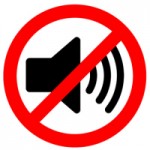Silent Letters
One of the more annoying things about the English language is its high content of silent letters. A whopping 60% of English words include silent letters in them. These letters can create a problem for both writers and readers, and certainly for those of us who are studying English as a second language. Many English students – native and non-native speakers alike – find themselves very frustrated with certain words. The language can become a lot more difficult when some words are not spoken as they are written, and not spelled as they are spoken!

Shhh..!
Silent letters are those letters which are found in a word, but are not pronounced when the word is spoken. In most cases, these silent letters are simply leftovers, remnants of the English language’s Latin, Greek, French, and West Germanic origins. Words like knife, psychology, and mnemonic, for instance, have a silent letter at the beginning of the word, and their sound is dropped completely. Why have they lingered? Who knows, but they are here to stay. For now, anyway. You can even go as far as to call them ghosts of language past! There is a good chance they will be taken out of the dictionary in time, as the English language continues to evolve and grow.
However, not all silent letters in English are useless. Many of them do serve important purposes in modern English:
- Silent letters are used to distinguish between words that sound the same: side/sighed, nay/neigh, wood/would.
- They are used to put emphasis on a certain part of the word: cue/queue, moose/mousse, physics/physiques
- Silent letters are used in word combinations, and can give some insight into the origin of the word: vineyard – a yard of vines – is reminiscent of grapevines, more so than the phonetic vinyard does.
- They can help connect words of shared origin:
- Resign has a silent g, but the g in resignation is pronounced.
- Phlegm has a silent g, but the g in phlegmatic is pronounced.
Another great little tidbit about silent letters is one I recently got wind of. Apparently, when the first printing presses arrived in England, they were brought in by those of Germanic decent. The guys running the printers had carte blanche, since there was no standard of spelling, and they decided to show some patriotism, take the initiative, and make the English words appear closer to the language which they spoke back home.

Silent letters are particularly difficult, but there are a number of rules that may help you out:
– Silent k before n – knife, knight, knit
– Silent w before r – wrist, wrought, wrench
– Silent g before n – gnat, gnostic, gnaw
– Silent p before s – psychology, psalm, psoriasis
– A silent l is often before k – chalk, balk, talk
– A silent b is often after m – plumber, climb, dumb
– A silent n is often after m – column, autumn, condemn
– A silent t is often after s – listen, whistle, bustle
Of course, there are always exceptions to the rules.
No comments yet.